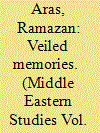| Srl | Item |
| 1 |
ID:
193650


|
|
|
|
|
| Summary/Abstract |
A growing body of evidence attests that legislators are sometimes responsive to the policy preferences of citizens in single-party regimes, yet debate surrounds the mechanisms driving this relationship. We experimentally test two potential responsiveness mechanisms—elections versus mandates from party leaders—by provisioning delegates to the Vietnamese National Assembly with information on the policy preferences of their constituents and reminding them of either (1) the competitiveness of the upcoming 2021 elections or (2) a central decree that legislative activities should reflect constituents’ preferences. Consistent with existing work, delegates informed of citizens’ preferences are more likely to speak on the parliamentary floor and in closed-session caucuses. Importantly, we find that such responsiveness is entirely driven by election reminders; upward incentive reminders have virtually no effect on behavior.
|
|
|
|
|
|
|
|
|
|
|
|
|
|
|
|
| 2 |
ID:
174151


|
|
|
|
|
| Summary/Abstract |
Under the omnipresence of surveillance, control and fear of the state as ontological signifiers, not only agency but also subjective and collective memories of people become unspeakable, hidden and veiled. This paper aims to underline the difficulties of doing ethnographic research on the secular Turkish state formation and its diverse apparatuses with a particular focus on the single-party regime that started in 1923 and ended in 1950. This work claims that fear of the state, inaccessibility of the state archives, the inscription of protective laws such as lèse-majesté for founding figures of the state, and the senility of survivors result in muteness, the emergence of politics of forgetting and remembering that diminish the possibility of studying relations between the authoritarian secular state and its Muslim subjects. It is argued that the hegemony of emotions of fear of the state and insecurity have turned historical and ethnographic research on the subject matter into a difficult one. Based on a recently conducted large-scale oral history study in different parts of Turkey, this paper also analyzes the resistance, resilience, and silence of mass Muslim population towards diverse forms of state-sponsored authoritarian secular politics along with western and Turkish nationalist top-down regulations of the new regime.
|
|
|
|
|
|
|
|
|
|
|
|
|
|
|
|